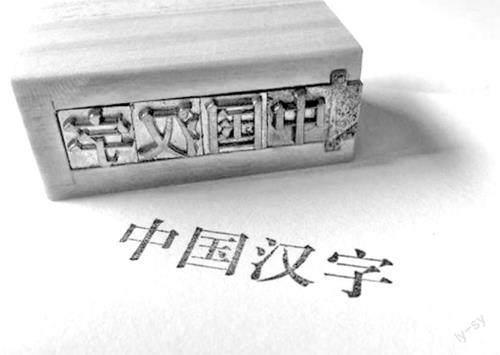重视汉字手写,传承中华文明
江丽

主题语境:语言书写篇幅:329词 建议用时:6分钟
With the rapid pace of working and living, moreand more Chinese are facing a phenomenon: They tendto forget how to write Chinese characters. Some mediahave described the problem as a “crisis” for Chinesecharacters. So how important is Chinese writing and howcan we avoid“ character amnesia” in the future?
Texting and typing are replacing the elaborate strokes (笔画) that make up writtenChinese. And when it comes to writing down a few words, more Chinese are realizing theycant remember exactly how to write a given character.
Professor Meng Man, an associate professor of Minzu University of China, is one ofthe judges of the Chinese Character Dictation Contest broadcast on CCTV. She says shelearned a lot.“ I was amazed by some competitors because even I couldnt remember how towrite certain characters. The writing ability of adults in China falls short of our expecta?tions. This TV programme is really great for drawing peoples attention to writing Chinesecharacters.”
This is a strange new form of illiteracy. The longer people use their cellphones andcomputers, the less often they write with pens. Whether typing on their computers or textingon phones, most Chinese use a system where they type out the sound of the word in pinyin,which is commonly used, and they are given a choice of characters to use. Experts say thesituation may not rise to the level of “cultural crisis”, but we need to be aware of theproblem.
Meng says,“ Chinese characters are generally square. This is meant to teach peopleto be upright and respectable. Typing tends to cut off the Chinese bond with the root oftraditional culture. This might be potentially dangerous.”
To settle this problem, experts suggest people change mobile phone typing frompinyin to handwriting or five?stroke typing to help avoid forgetting how to write characters.After all, writing Chinese characters is what we need to pass on to future generations.
ReadingCheck
1. What does the underlined word“ amnesia” in paragraph 1 mean?
A. Writing. B. Popularity. C. Memory loss. D. Correct use.
2. What is the potential danger of typing instead of writing Chinese characters according to
Meng?
A. It may result in a cultural crisis.
B. It may lead to a loss of tradition and cultural roots.
C. It may decrease peoples respect for the Chinese language.
D. It may cause a decline in overall literacy rates.
3. What suggestion is given by experts to avoid“ character amnesia”?
A. Using handwriting on five?stroke typing method.
B. Switching from handwriting to pinyin typing.
C. Learning how to write Chinese characters from scratch.
D. Increasing the use of computers and cellphones for writing.
4. Whats the purpose of this text?
A. To tell people how to write Chinese characters.
B. To introduce the mobile phone typing system—pinyin.
C. To encourage people to take part in the Chinese Character Dictation Contest.
D. To appeal to people to write Chinese characters more often.
LanguageStudy
Ⅰ. 日积月累
phenomenon n. 现象
system n. 系统
traditional adj. 传统的
culture n. 文化
expectation n. 期望
crisis n. 危机
avoid v. 避免
handwriting n. 手写
potentially adv. 潜在地
five?stroke adj. 五笔的
be aware of 意识到
Ⅱ. 语法填空
With the fast pace of modern life, many Chinese people are experiencing a phenom?enon known as “character amnesia”, where they forget how 1. (write) Chinesecharacters. This issue has been described 2. a crisis for Chinese characters.Writing is being replaced by texting and 3. (type), leading to a lack of familiaritywith the strokes 4. form Chinese characters. Even adults in China struggle toremember how to write certain 5. (character).
Experts suggest that this may not reach the level of“ 6. (culture) crisis”, butit is still a problem that 7. (need) attention. Chinese characters are meant8. (teach) people to be upright and respectable, and typing can disconnect peoplefrom the root of traditional culture.
To address this issue, experts recommend changing mobile phone typing from pinyin9. handwriting or five?stroke typing. This can help individuals retain their abilityto write characters and preserve the 10. (important) of Chinese writing for futuregenerations.

